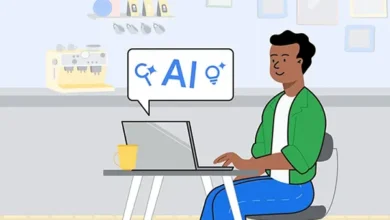Customer Education: Training Videos For Software Adoption

What’s Customer Education?
Customer education is a process that empowers customers to understand and use your product or service more effectively. It involves providing them with the knowledge and skills they need to succeed. By investing in customer education, you can help your customers achieve their goals and get the most out of your product.
Customer education encompasses a wide range of methods designed to equip customers with the knowledge and skills they need to effectively use your product or service. These methods can be categorized into two primary groups:
- Informational content – This includes materials that provide customers with general information about your product or service, such as product overviews, FAQs, and user guides. It also encompasses more in-depth resources, such as whitepapers and case studies, that delve into specific topics or use cases.
- Interactive training – This involves more active forms of learning, such as webinars, tutorials, and training videos. These methods allow customers to engage directly with the product or service and practice using its features.
By combining these two approaches, you can create a comprehensive customer education program that meets the diverse needs of your customer base.
Benefits Of Creating A Customer Education Program
A well-designed customer education program, whether developed in-house or through specialized customer education services, offers numerous benefits to both customers and businesses. For customers, it empowers them to use the product or service effectively, leading to increased satisfaction and customer success. By providing customers with the knowledge and skills they need, you can help them achieve their goals and get the most out of your product. This can lead to improved customer loyalty and retention.
For businesses, a customer education program can have a significant impact on the bottom line. By improving customer product adoption and user engagement, you can increase product usage and revenue. Additionally, a well-designed program can help reduce support costs by empowering customers to solve problems on their own. This can lead to increased efficiency and cost savings for your business.
Improved Customer Adoption And Engagement
Customer training videos show customers how to use your product in a format they prefer. This helps them understand how to use it more effectively, leading to better product adoption. Customers become more engaged when they understand your product and can see how it can benefit them.
Reduced Support Tickets
Customer education empowers customers by providing them with the knowledge and skills they need to solve problems on their own. This leads to fewer support tickets and reduced support costs.
Lowered Training Costs
Customer training videos are a cost-effective way to provide customer education. They can be reused many times, reducing the overall training cost.
Improved Retention, Renewal, And Expansion Rates
Educated customers are more likely to see the value in your product and are more likely to renew their subscriptions or purchase additional products or services.
Stronger Brand Reputation And Loyalty
Customer education demonstrates your commitment to customer success and builds trust and loyalty. A strong brand reputation can attract new customers and improve customer retention.
Faster Onboarding And Reduced Time To Value
Training videos can speed up the onboarding process, helping customers start using your product faster. This can help them realize the value of your product sooner.
Do you need some inspiration? Check out our award-winning portfolio!
Higher Customer Satisfaction And Retention
Happy customers are more likely to stay with your company. Customer education can lead to higher satisfaction and retention rates.
Customer Education Examples
Tutorials example: A tutorial on how to create a new project in your software, with step-by-step instructions and screen recordings.
Training videos example: A video that explains complex concepts in your software, such as how to use a specific algorithm or feature.
Online courses example: A course on how to use social media platforms for business, with modules on different platforms and best practices.
For other examples of effective customer education programs, check this article out.
How To Create A Customer Education Strategy
1. Understand Your Customers’ Needs
Before diving into educational content creation, take the time to truly understand your customers’ needs. Conduct surveys or interviews to uncover their pain points and challenges when using your product or service. What are their common questions? What tasks do they find difficult? What knowledge gaps exist? Gathering this valuable feedback will ensure that your customer education strategy is laser-focused on providing solutions to their real-world problems.
2. Create A Content Plan
With a clear understanding of your customers’ needs, it’s time to map out a content plan. Outline the key topics you want to cover, prioritizing those that address common issues or complex tasks. Consider creating a mix of content formats, such as articles, tutorials, videos, and webinars, to cater to different learning styles. Remember to break down complex topics into bite-sized modules for easier comprehension.
3. Choose The Right Format
Not all content formats are created equal. Some topics are best explained through videos, while others might be better suited for written articles. Consider your audience’s preferences and the nature of the information you’re conveying when selecting the format. Interactive elements, like quizzes or simulations, can boost engagement and knowledge retention.
4. Measure Customer Success
How will you know if your customer education strategy is working? Identify key metrics to track, such as product adoption rates, customer satisfaction scores, and support ticket volume. Regularly analyze this data to gain insights into the effectiveness of your education program. Use these findings to refine your strategy, update content, and ensure you’re delivering the most valuable learning experiences to your customers.
Customer Education Program: The Tools
Building a successful customer education program requires more than just great content. You also need the right tools to deliver, manage, and track your efforts. A Learning Management System (LMS) serves as the central hub for organizing and delivering your educational content. It allows you to create courses, track learner progress, and even issue certifications upon completion. A video-hosting learning platform is crucial for storing and sharing customer training videos, making them easily accessible to your audience.
For creating engaging tutorials, screen recording software is indispensable. It lets you capture your screen and voice, guiding users through step-by-step processes within your product. Once you’ve recorded your footage, video editing software helps you polish your videos, adding effects, transitions, and captions for a professional touch.
Beyond training content creation and delivery, you’ll want tools to engage with your customers and gather their feedback. This could include live chat, surveys, or community forums. These tools enable you to connect with your audience, answer their questions, and gain valuable insights to improve your education program. By leveraging these essential tools, you can build a comprehensive customer education program that empowers your users and drives customer success.
Customer Training: Case Study On Software
InMobi University: Empowering Advertisers, Driving Growth
InMobi, a top mobile advertising platform, helps businesses reach their target audiences on mobile devices. But they noticed a problem: many advertisers didn’t fully understand mobile advertising or have a specific strategy for it.
The Challenge: Boosting Mobile Advertising Know-How
InMobi’s sales team saw that advertisers often lumped mobile and social advertising together, missing out on mobile’s unique potential. To help them thrive, InMobi needed to raise the industry’s overall understanding of mobile advertising.
The Solution: Engaging Videos And Easy Access
InMobi University was born. To create a truly engaging and effective learning experience, InMobi partnered with Ninja Tropic, a leading provider of interactive video content. Interactive videos shared best practices and essential knowledge, with courses designed for all skill levels. Each lesson included a quiz to ensure learners grasped the concepts before moving on.
The education program was delivered through Skilljar, an easy-to-use learning platform, and promoted widely. Learners got videos, quizzes, and handy resources to apply their knowledge. Eye-catching infographics and animations made complex ideas simple, all while keeping InMobi’s branding consistent.
The Results: Real Impact And Industry Recognition
InMobi University made a difference. The number of marketers who felt like mobile newbies dropped by 5%. In 2022 alone, the program brought in $4 million from existing customers and $1 million in new business. InMobi also became a trusted expert in mobile advertising.
The Lesson: Education Fuels Success
InMobi’s story shows that teaching your customers pays off. By creating a program that addressed a real need, they boosted industry knowledge, strengthened customer ties, and became a thought leader. InMobi University proves that businesses can use engaging learning and smart delivery to grow their industry and reputation.
Source link






